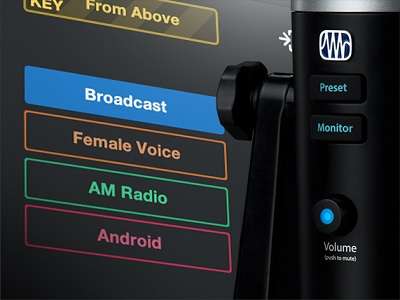Apogee Rosetta 800-192k
Apogee Rosetta 800-192k
Key features:
- 8 channels of premium 24-bit AD/DA conversion
- Sample rates up to 192kHz
- 8 channels of AES, ADAT I/O
- Optional Firewire card for compatibility with OS X, and Windows XP
- “Soft Limit” for maximum digital level without overs
- “UV22HR” for superior dither to 16-bit
- Unique channel selection for flexible signal routing
- Advanced, dual-stage “Intelliclock”
- Legendary Apogee quality
opened box, not used
Original price was: HKD 19,800.00.HKD 6,500.00Current price is: HKD 6,500.00.
8-channel 24-bit/192kHz AD/DA Converter
Apogee’s all-new Rosetta 800 takes two of the most celebrated Apogee products and the latest in high-definition digital and combines them into one impressive package. The Rosetta 800 gives you eight channels of superior AD/DA conversion at sample rates of up to 192k, Apogee’s “SoftLimit”, “UV22HR”, and their advanced “Intelliclock”. The Rosetta 800 is a premium digital recording solution that is built for the professional recording facility yet economical enough for the project studio. Every studio should have a Rosetta 800!
Apogee Conversion in High-Definition
The most crucial component in the digital recording environment is high-quality conversion and the most trusted and desirable converters are made by Apogee. With up to 192k sample rates, the Rosetta 800 combines Apogee’s legendary conversion quality with flexibility that complements any digital audio workstation.
Firewire for Future Connectivity
Rosetta 800 has room for expansion. With the optional Firewire card installed , you’ll be able to connect the Rosetta 800 natively to any Firewire input device, without the need for additional hardware.
SoftLimit
One of the greatest difficulties in digital recording is getting an adequate level without clipping and unwanted distortion. With Apogee’s SoftLimit, you can maximize digital output levels without overs.
UV22HR
UV22HR is Apogee’s industry standard technology for reducing the word-length of a high-resolution digital signal to 16 bits for the internet and CD mastering. UV22HR is also being employed in the Rosetta 800 to produce dramatically improved internet and computer audio content without increased file sizes or data rates.
Intelliclock
Another essential for outstanding digital recording is maintaining an ultra-low-jitter, clock signal. To accomplish this, Rosetta 800 utilizes Apogee’s Intelliclock. Intelliclock is really two clocks in one. A fast-responding ‘read’ clock, with a wide locking range, fills a dedicated FIFO buffer, while an ultra-low-jitter ‘write’ clock writes the data out of the buffer, and is used to clock the converters.










